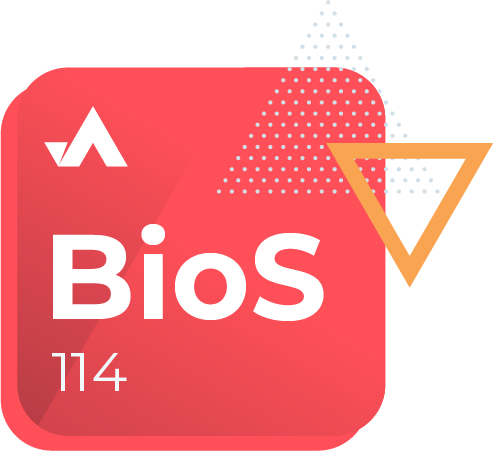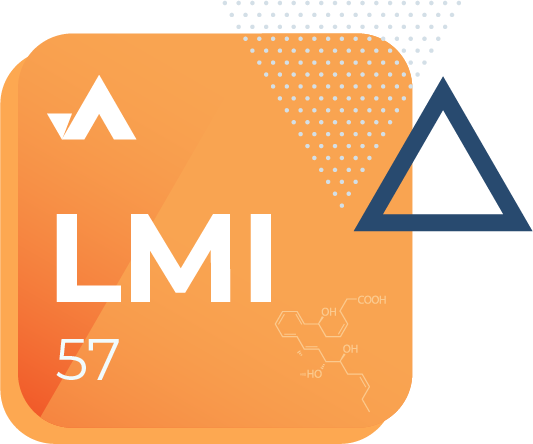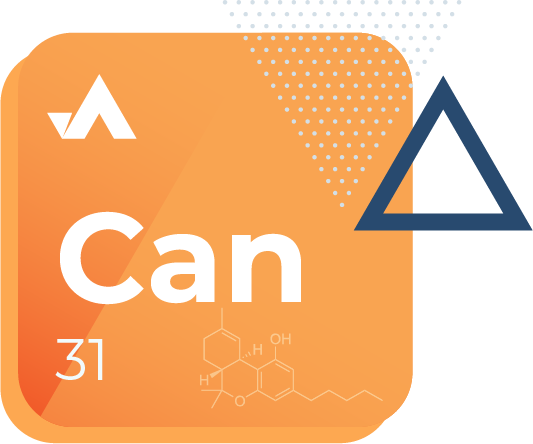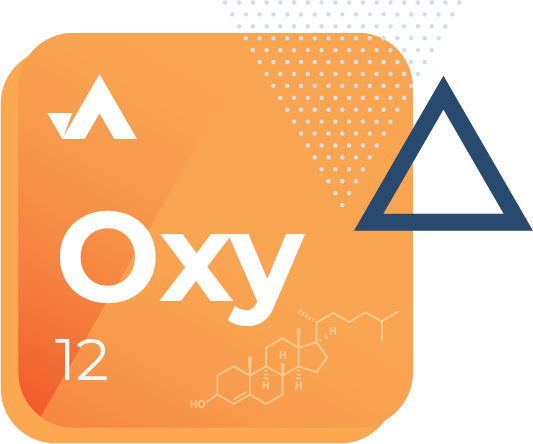
Metabolon Discover
Biological Stress Discovery Panel
Unrivaled metabolic phenotyping
Rigorous quality control
Revolutionary data visualization
About Biological Stress Discovery Panel
All organisms sense and respond to their environments. The culmination of these internal and external signals can be described as stressors, which are typically mediated by insults such as injury, toxic exposure, infection, and the general necessary perturbances caused by food consumption and metabolism. Responses to these stressors involve coordination between the circulatory, endocrine, nervous, and immune systems, as well as cellular-level responses to insults such as reactive oxygen species. Coordination of an appropriate response to stress is mediated by tightly controlled cell signaling processes that enable a stress response and subsequent return to a baseline-ready state. However, prolonged exposure to stress and/or misregulated stress responses affects homeostasis and can lead to poor health, diseases, disorders, and ultimately death.
The Biological Stress Discovery Panel enables novel biomarker discovery by delivering relative quantification for 114 key biological stress metabolites across seven classes. These results are delivered in the MyMetabolon Portal, which provides advanced analytics and revolutionary visualization tools to further your discovery.
Biological Stress Discovery Panel Details
The Biological Stress Discovery Panel analyzes 114 key biological stress metabolites across seven metabolite classes including inflammation and immunity, stress signaling, injury and circulation, oxidative stress, metabolism and glycemic stress, protein catabolism and decay, and vitamins. To view more details about the metabolite list, download the technical sheet.
| Sample Type and Required Amounts | |
|---|---|
| Sample Type | Sample Requirements |
| Mammalian Serum and Plasma | 200 µL |
Disclaimer: This method is for Research Use Only and is not to be used for diagnostic purposes.
Unrivaled Metabolic Phenotyping
Untargeted metabolomics helps researchers understand what is present in any biological sample, but accurate detection, identification, and ultimately, quantification of said analytes can vary greatly based on sample type, sample preparation, instrumentation, methodology, and data analysis capabilities. All Metabolon Discover services leverage Metabolon’s proprietary LC-MS metabolomics platform and integrated bioinformatics solution, giving you industry-leading resolution and reproducible sample analyses, all referenced against the world’s largest level 1 metabolomics compound library.
Delivering Absolute Quantification for Research and Biomarker Analysis
Our readily available or custom developed quantitative assays help you achieve your research and biomarker validation objectives with precise and fully validated methods. Our targeted assays and panels cover >1,000 metabolites and lipids across a wide range of biochemical classes, metabolic pathways, and physiological processes, and they can be customized to best fit any application.
Data Analysis Tools
Results of your metabolomic analysis using the Biological Stress Discovery Panel are delivered in the MyMetabolon Portal. The portal offers revolutionary data analysis tools to help you visualize and identify metabolites of significance within your sample and the impact of those metabolites on your pathways of interest.
The Discovery Panel Report
Within the Discovery Panel Report, you can visualize all detected metabolites in a Bubble plot. You can select statistical comparisons, adjust the p-value, flip the fold change, and search for a metabolite of interest from the toolbar at the top. You can also explore the significantly up- and- down-regulated metabolites. Within the Bubble plot, quickly identify metabolites of significance and click those metabolites to learn more. You can also download an image of the bubble plot repurposed for redistribution outside the MyMetabolon portal.
Impact Explorer
Impact Explorer is the next step in diving deeper into your Discovery Panel data. Select up to six statistical comparisons to view within the heliogram visualization, which is a reimagining of a heatmap of metabolite fold changes grouped by pathway and organized in a circular view. You can click on specific metabolites or associations and view the relationship between the groups. Additionally, you can also download an image file for any view you find interesting in the heliogram.
Metabolite Profile Finder
The Metabolite Profile Finder can be used to explore a specific metabolite or pathway of interest. Either can be accessed by clicking the Profile Finder tab, or by navigating from the Discovery Panel Report tab. In the Metabolite Profile Finder, you can see an overview of the metabolite of interest. This page includes links to PubChem, KEGG, and HMDB for further education. You can also view how that metabolite was statistically represented in each of the study comparisons. Finally, you can also see the associations linked to a given metabolite.
Applications for the Biological Stress Discovery Panel
Nutrition
Metabolomics can be essential for investigating the association between nutrition and health status, as metabolites represent a functional readout at the interface between diet and the complex metabolic systems that influence both health and disease. By illuminating the interactions of metabolites throughout the body within defined pathways, targeted metabolomics can help investigators gain new insights into the absorption and digestion of diet-derived macronutrients, monitor metabolism of various organ systems, and subsequently assess the underlying biology of multiple health and disease states.


Cardiovascular Disease
Heart failure is a leading cause of death worldwide, and there are numerous factors that lead to this and other cardiovascular diseases (CVDs). Metabolomics can illuminate CVD at multiple levels. In preclinical studies, such as with cardiomyocytes or heart tissue from model organisms, understanding mitochondrial function, energetics, and redox status can drive critical insights into the mechanism of diseases. In human studies, metabolomics offers the opportunity to account for well-established CVD risk factors such as cholesterol and complex lipids, while simultaneously profiling thousands of other biochemicals in an unbiased fashion to enable the discovery of novel disease mechanisms and biomarkers.
Diabetes
Diabetes is a serious metabolic condition affecting more than 37 million Americans and 460 million people worldwide, according to the most recent report from the Centers for Disease Control. Despite being a worldwide epidemic, much remains unknown about individual risk factors for diabetes development, and research is currently being done to identify new and effective treatments for diabetes at all stages. By facilitating the assessment of specific metabolic pathways impacted by diabetes, targeted metabolomics can be a critical tool used to identify biomarkers of disease development for early intervention and novel targets to control disease progression, as well as for the development of new pharmaceuticals with specific mechanisms of action.


Inflammation
The importance of inflammation in the development of multiple disease- and health-related conditions, including neurodegeneration, diabetes, cardiovascular disease, cancer, and inflammatory bowel disease, is undisputed. Metabolomics can inform inflammatory processes by providing a readout of the small molecules of an organism, tissue, biofluid, etc. This allows for direct molecular phenotyping of inflammation beyond the standard protein markers of typical assays. Metabolon offers several targeted assays, including oxysterols, fatty acids, kynurenine/tryptophan, and a range of others that can elucidate connections between disease states and inflammatory processes.
Oncology
Dysregulated metabolism contributes to but is not essential for the growth and proliferation of individual cancer cells — patient physiology is as much a part of the equation as the tumor. Metabolomics can both identify cancer-specific drug targets and assess the patient’s phenotype more broadly, addressing key questions like who will respond to the therapy? How can we expand the pool of responders? How can we predict adverse events? By providing a functional readout of the molecular phenotype, metabolomics informs decision-making and positions development programs for success.


Neuroscience
It is well-established that a low-carbohydrate, high-fat ketogenic diet (KD) can help treat refractory epilepsy, which affects more than a third of epileptic patients who don’t respond to existing anticonvulsive drugs. What scientists haven’t understood until recently is how this kind of diet translates to brain activity. The answer to this aspect of epilepsy lies in the gut microbiome. There are many other neurological disorders like Alzheimer’s disease, ALS, Parkinson’s disease, and more. While so much remains to be understood about brain science, we do know that metabolomics is uniquely poised to understand the brain because of the ability of metabolites, small molecules, to cross the blood-brain barrier providing unique insights.
Big Insights with Metabolon
Cited in over 3,000 publications, we help scientists and manufacturers gain greater insight into their studies through metabolomics. See how our approach can become a successful part of your workflow.
Related Targeted Panels for Absolute Quantification
Metabolon offers services to further your discovery across the research continuum. For a more specific understanding of metabolites of interest, Metabolon offers targeted panels that provide absolute quantification. Below are Metabolon’s targeted panels related to the Biological Stress Discovery Panel.

Lipid Mediators of Inflammation Targeted Panel
The Metabolon Lipid Mediators of Inflammation Targeted Panel is the only lipid panel available on the market that focuses on inflammatory markers, providing focused insights into inflammation.

Cannabinoids Targeted Panel
The Cannabinoids Targeted Panel measures 31 cannabinoids and related molecules. Sample preparation is customized to enrich for these metabolites, providing much better detection than other existing method.

Oxysterols Targeted Panel
Oxysterols are intermediates in the development of bile acids, steroid hormones, vitamin D3, and other bioactive markers of inflammation and other disease states. Oxysterols—oxidized products of sterols—are bioactive intermediaries that are associated with certain diseases, such as cardiovascular disease, Alzheimer’s disease, diabetes, and cancer.

Sphingolipids Targeted Panel
The Metabolon Sphingolipids Targeted Panel extends insights from genomics and proteomics by confirming the functional impact of upregulated and downregulated genes and proteins and filling gaps in metabolic pathways and biological systems that cannot be observed with other approaches.
Contact Us
Talk with an expert
Request a quote for our services, get more information on sample types and handling procedures, request a letter of support, or submit a question about how metabolomics can advance your research.
Corporate Headquarters
617 Davis Drive, Suite 100
Morrisville, NC 27560
Mailing Address:
P.O. Box 110407
Research Triangle Park, NC 27709

